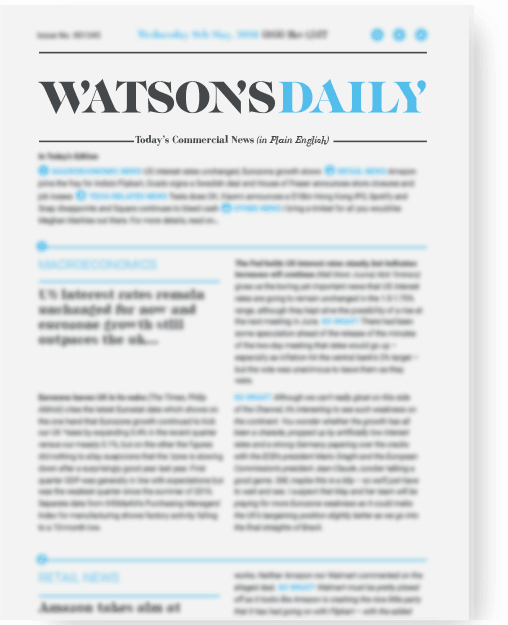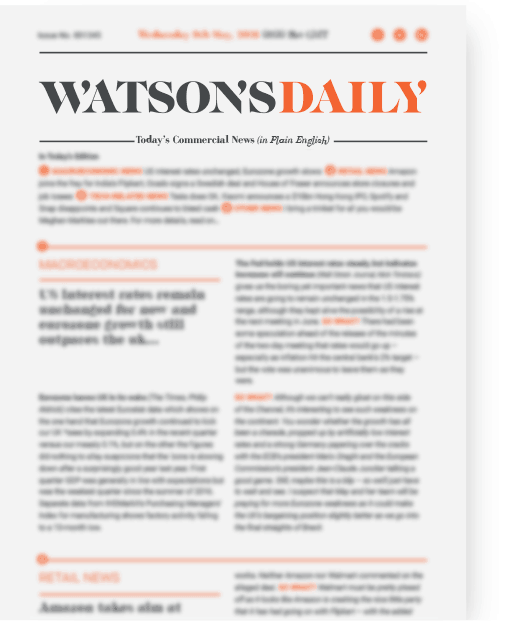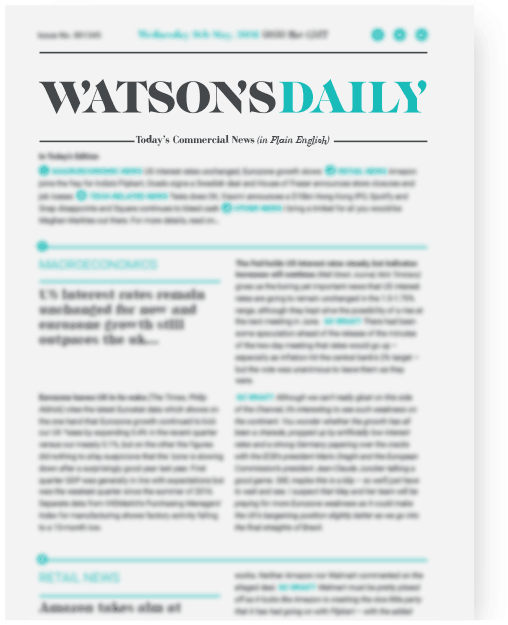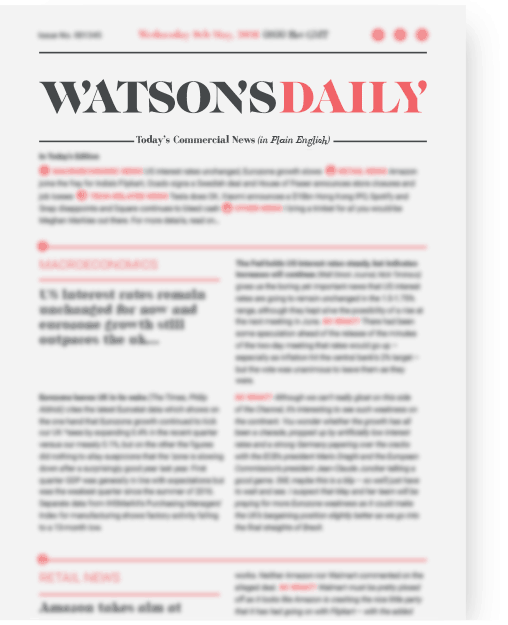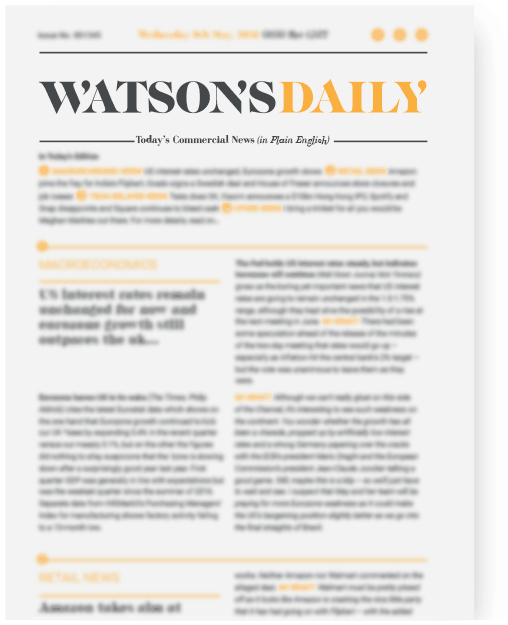- In POST-CORONAVIRUS NEWS, China picks up, fears of second-wave job losses persist and companies provide social distancing gadgetry
- In AIRLINE-RELATED NEWS, Buffett sells out of airlines, Rolls-Royce suffers from lack of air time and leasing companies brace for turbulence
- In TECH & MEDIA NEWS, big tech firms reap the rewards while media firms suffer
- AND FINALLY, I bring you fake airpods with a twist and a questionable invention for escaping Zoom…
1
POST-CORONAVIRUS NEWS
So Chinese tourism picks up, brands pin hopes on Chinese consumers, job loss fears increase and various companies provide social distancing gadgetry…
China tourism numbers bounce back during Labour Day holiday (Financial Times, Thomas Hale) shows that Chinese travellers stretched their legs after lockdown and went to see famous tourist sites over the May Day holiday, which runs until the end of tomorrow. It is hoped that this uptick in tourism, albeit in muted numbers compared to usual circumstances, is an early signs of a return to normality. Last week, Beijing announced that inward travellers from most areas of China would no longer have to spend two weeks in quarantine – which also helped to ease normal business and tourism activity. China reported only two new cases of coronavirus to the end of Saturday, but lingering concerns remain about a second wave, especially in Heilongjiang, which is in China’s north-east.
In Global brands need China’s consumers to spend. They might have to wait (Wall Street Journal, Trefor Moss and Stella Yifan Xie) we see that global brands are crossing their fingers for a return of Chinese consumers as companies such as Lego and Domino’s Pizza say they are experiencing a definite gathering of momentum versus the last couple of months. However, unsurprisingly, a return to normal is expected to take some time given that many people have lost their jobs or taken a dent in their income and want to build their savings back up. * SO WHAT? * Given that China is the world’s largest retail market, with $5.8tn in retail sales in 2019, you can understand why brands are hoping for a major pick-up. Online retailers like JD.com have done best during the course of the pandemic, but then some traditional retailers also did well (Nike, for instance, reported a 5% INCREASE in quarterly sales in China) and luxury goods makers such as LVMH and Kering (parent of Gucci) have said that their customers seem to be keen to return “to their previous patterns of consumption”. At the end of the day, everyone is still shell-shocked and I think that a strong bounce-back at this stage is unlikely. The good thing is that it’s not all a total disaster at the moment.
Virus-hit economies brace for second wave of job losses (Financial Times, Delphine Strauss) highlights ongoing concerns that a second wave of job losses could hit developed economies despite lockdown lifting as businesses are forced to reassess their priorities. While
advanced economies around the world have already reported huge job losses following a generally prolonged trend of increasing employment, the International Labour Organisation, a UN agency, reckons that the fall in working hours in the second quarter of 2020 will equate to the loss of over 300m full-time jobs. Although initial government efforts have focused on preserving as many businesses as possible, the next major concern is whether people will be able to return to their jobs and/or whether they will be able to find new ones otherwise unemployment costs will continue to be considerable.
Meanwhile, companies are coming up with interesting ways to enable returning workers keep to social distancing guidelines. Fitbit offers virus help as it chases Google deal (Daily Telegraph, Margi Murphy) shows that Fitbit (which Google is currently trying to buy for $2.1bn) is planning on turning its fitness bands into social distancing and coronavirus symptom monitors. From a cynical point of view, you wonder whether it’s mainly doing this to earn brownie points from regulators to let the Google-Fitbit deal to go ahead (some are sceptical of putting medical data from Fitbit users into the hands of Google), but given that the company has sold over 100m devices and has 30m active users, you can see why they might have the scale to help in the effort against the coronavirus. Then in Returning office workers could reserve lifts using Salesforce tool (Daily Telegraph, James Titcomb) we see that Salesforce has come up with some online tools designed to help employers get their staff back to work in the form of lift/elevator reservation and daily health assessments, among other things. However, I think that Hopes for hi-viz hit with ‘don’t stand so close to me’ (The Times, Robert Lea) is the most interesting idea as a Midlands-based company called Wearable Technologies has developed a special high-visibility jacket that contains sensors that warn co-workers when they come within four metres of each other, with an alarm going off at two metres. This has the double benefit of showing that employers are protecting their workers as well as giving employees peace of mind. It will also give employers better quality information about where problem areas might be in the workplace, giving them the opportunity to address them in a more informed manner. * SO WHAT? * I suspect that there will be some SERIOUS money to be made in providing software and other more tangible products that help to enforce and enhance social distancing. I know that this is maybe a bit early in the day for philosophy, but as Plato once said “Necessity is the mother of invention” – so coronavirus may well be the mother of profitable gadgetry IMO.
2
AIRLINE-RELATED NEWS
The nightmare continues for those in the air travel industry…
You may recall what I was saying last week about the nightmare the airline industry is going through at the moment – well it’s getting worse. Warren Buffett dumps US airline stocks, saying ‘world has changed’ (The Guardian, Martin Farrer) highlights the actions of the world’s most famous investor (aka the “Sage of Omaha” and/or the “Oracle of Omaha”) who has sold off his holdings in Delta, American, Southwest and United “at a substantial loss” because he thinks that the future is too uncertain and that the companies will just burn cash for the foreseeable. Rolls-Royce runs into trouble as flying hours collapse 90 per cent (The Times, Emily Gosden) shows that the lack of flying hours is going to hit the engineering company badly as last year payments based on this metric accounted for about 25% of its group revenues. It announced last month that flying hours had already fallen by 50% in March. * SO WHAT? * At the
moment, the company employs about 52,000 people around the world in civil aviation, defence and power systems, but a massive fall in engine orders and dismal prospects for the industry for the next few years will no doubt prompt a wave of job cuts (it’s currently in negotiations with unions over as many as 8,000 cuts).
I did touch on this last week, but Aircraft leasing sector feels the weight of global grounding (Daily Telegraph, Alan Tovey and Simon Foy) shows that aircraft leasing companies (ALCs), who now own just under 50% of the world’s 27,000 airliners operating right now, are facing the decimation of their business model (renting out planes on long contracts) due to the coronavirus outbreak. Around 80% of airlines have asked them for payment holidays, but a few months of going rent-free is unlikely to cut it longer term and the ALCs are probably going to have to repossess planes from airlines that can’t make the payments. * SO WHAT? * If doomsday forecasts for the airline industry come true, demand will just disappear and the ALCs may have no alternative other than to break up the planes for parts. Smaller ALCs are thought to be most vulnerable as they may have less access to extra capital to tide them over. It looks like ALCs are in for a dramatic shake-up…
3
TECH & MEDIA NEWS
Big tech wants to feel the love but media firms suffer…
Big tech firms charge up for new era after lockdown ends (Daily Telegraph, Laurence Dodds) is a really interesting article that looks at the ways Big Tech has been helping us through the current lockdown and how they will probably emerge from it even richer and more dominant than ever. Sir Martin Sorrell, the original founder of WPP who now owns internet-focused ad agency S4 Capital, said that he is seeing clients turning increasingly to digital media with their ad spend (Marty must have been reading last week’s Watson’s Daily where I said the same thing 😜). He said that he expects the current 45-50% of global ad spending that goes to digital will increase to about 57.5% by 2022 and to over two thirds by the end of 2025, which will power the likes of Google, Apple, Microsoft and Amazon to new highs. * SO WHAT? * Online is pretty much where it’s at at
the moment and tech companies will probably be able to weather this crisis better than many because of the huge amounts of cash they have at their disposal (although Amazon has less than the others I mentioned). I suspect that they will use this to scoop up weaker players to further consolidate their own strength.
Media firms hit by cuts in advertising (The Times, Simon Duke) confirms weakness in advertising as ITV and Reach (the biggest regional news publisher) are due to publish trading updates shortly that will show how dire the situation has become. Companies have been trying to hang on to as much cash as they can in the downturn and have cut marketing budgets right back. In fact, figures from the Advertising Association and WARC, the trade body, show that spending on TV adverts this year is likely to be cut by 20% while ad spend in newspapers and magazines is likely to be down by 20-25%. * SO WHAT? * This is just more evidence of trouble for traditional advertisers. Until companies see a recovery, ad spend is unlikely to increase in a meaningful manner and I don’t see that happening for quite some time.
4
OTHER NEWS
And finally, in other news…
Many of us are shopping online at the moment. Some people want to cheer themselves up with a bit of e-tail therapy so imagine the surprise the woman got in this story: Woman in hysterics after receiving fake AirPods that were bigger than her head (The Mirror, Paige Holland https://tinyurl.com/y9o47avb). Priceless 😂. Then I thought I’d alert you to a new useless invention for people who want to end a Zoom call early in Japanese genius invents a machine just to help you get out of unwanted video chats (SoraNews24, Casey Baseel https://tinyurl.com/yalgeq36). This could be The Next Big Thing under lockdown IMO…
Some of today’s market, commodity & currency moves (as at 0737hrs green is up, red is down). THIS IS INTENDED AS A ROUGH GUIDE ONLY!
| FTSE 100 * | Dow Jones * | S&P 500 * | Nasdaq* | DAX * | CAC-40 * | Nikkei ** | Shanghai ** |
| 5,763 (-2.34%) | 10,862 (-2.22%) | 4,559 (-2.48%) | HOLIDAY | ||||
| Oil (WTI) p/b | Oil (Brent) p/b | Gold Per t/oz | £/$ | €/$ | $/¥ | £/€ | $/₿ |
| $18.5300 | $26.1000 | $1,703.85 | 1.24474 | 1.09452 | 106.76 | 1.13731 | 8,649.48 |
(markets with an * are at yesterday’s close, ** are at today’s close)





